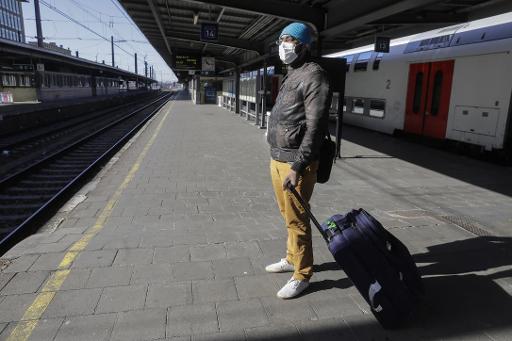The national rail authority SNCB was not consulted about a plan by the government to award a free ten-trip rail pass to every resident in Belgium as part of the measures announced yesterday.
According to SNCB CEO Sophie Dutordoir, the news of the pass, which was agreed by the so-called Superkern made up of government ministers and representatives of the ten parties supporting the government, came as a surprise to her as much as to the 11 million people living in Belgium.
“The way in which a decision was taken yesterday without any consultation raises serious questions,” Dutordoir said on Twitter. “The SNCB is therefore requesting immediate consultation and all necessary assistance to avoid any risk of overcrowding of trains and platforms.”
The Superkern included the rail pass in its package of measures as a support for the Belgian tourist industry, in the hope that people would use the pass – valid for ten single trips or five return journeys taken until December 31 – to explore tourist opportunities in Belgium, at a time when they were reluctant or unable to travel abroad.
That in itself, Dutordoir said, is a good thing. The way of going about it, however, leaves something to be desired.
“The free distribution of tourist train passes to all Belgian residents raises the question of the sanitary safety of passengers and staff,” she posted. “The SNCB will under no circumstances jeopardise the safety on which it has worked particularly hard in recent months.”
The population of Belgium at the beginning of the year was 11.59 million recorded by the UN. Excluding children under 15, that leaves about 9.66 million people eligible for the rail pass – the equivalent of 96.6 free rail journeys in all, or 1.1 million every day day from now until September 1.
For Dutordoir, that presents a huge logistical, safety and financial problem the SNCB has been presented with as a fait accompli. Not only does it present problems of hygiene and distancing, particularly on the more popular leisure routes, but issues such as the conditions for season-ticket holders and holders of existing rail passes, have not even been addressed.
“We also have questions about logistics and financing," said Bart Crols, SNCB spokesperson. “How will these rail passes be distributed among the population? And who bears the costs? Does SNCB receive a lump sum or compensation per passenger? Nothing has yet been agreed on this, which is why we urgently want a meeting.”
Koen Geens (CD&V), the federal justice minister, was the first government representative to respond.
“It is quite correct that the government ought to make contact with Sophie Dutordoir,” he said on VTM News. “If that has not occurred, we have only ourselves to blame.”
The decision was taken with good intent, Geens said.
“The intention was to get domestic tourism back on track because the trains are severely underutilised. I hope that all goes well, and that we can help guarantee safety.”
Alan Hope
The Brussels Times

